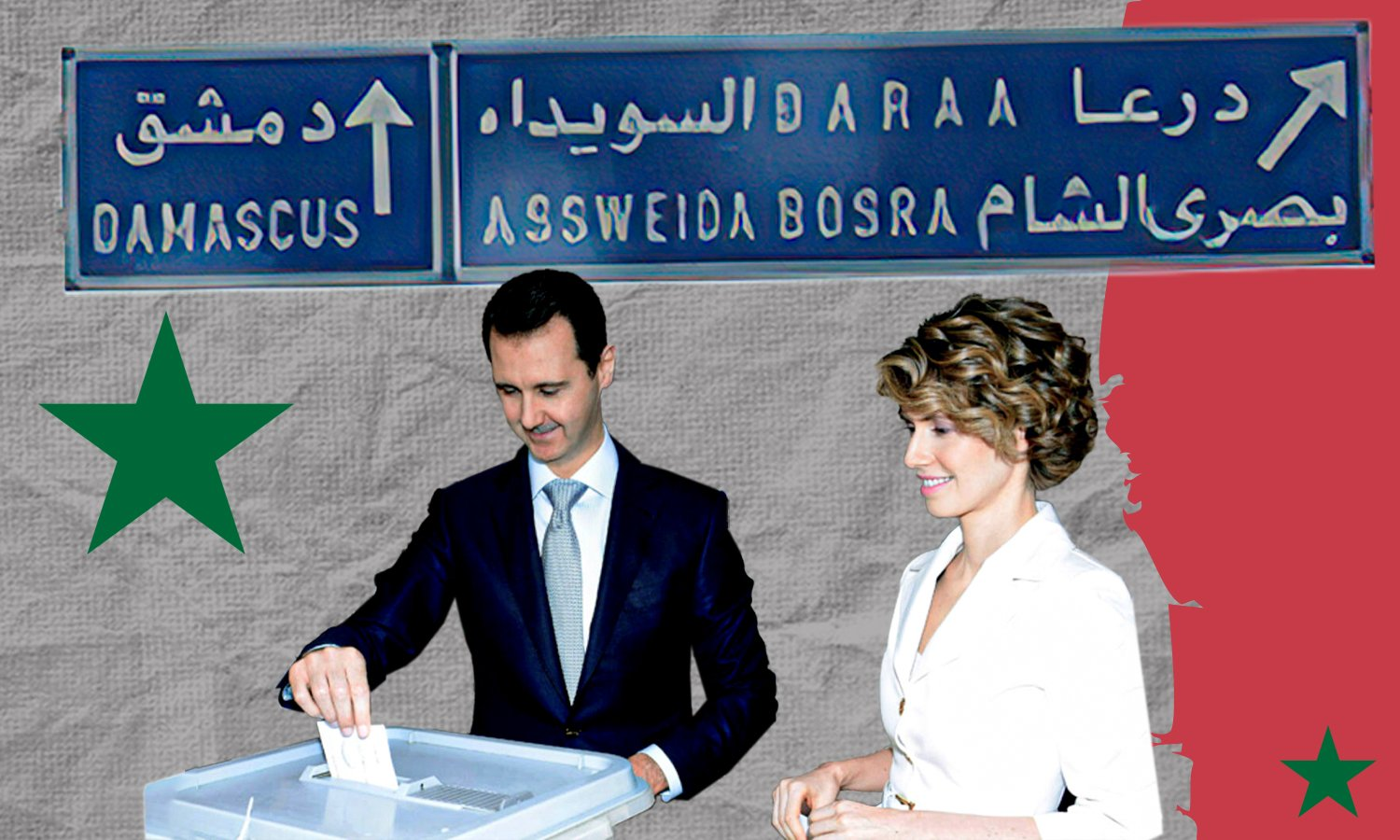Not a lot of time separates us from the next presidential elections in Syria, which are expected to take place next April. In the meantime, the Syrian regime has been trying to increase the number of measures it is taking to calm tensions in the southern regions of Syria, namely Suweida and Daraa.
These moves beg questions about the way the two regions are being managed in southern Syria. Furthermore, does the regime really care about the votes of the people, whose living conditions are on the decline, with 90 percent of them already below the poverty line? What are the tools and the means that the head of the Syrian regime, Bashar al-Assad, is using to market himself before the south for a new term?
The Syrian regime is keen on imposing control over southern Syria ahead of the presidential elections. On February 7, the regime, through its security branches, began to “settle” the conditions of wanted persons in Suweida.
The settlement provides for the abolition of the penalties for those who fail to attend the compulsory and reserve services as well as overriding the absconding punishment and the acquittal of those wanted for security reasons, in return for their joining the military service in the ranks of the regime.
The location of the military service will be in southern Syria (the areas of Suweida, Daraa, and Quneitra), according to the Suweida Network 24’s Facebook page.
Abduls Wahab al-Assi, a researcher at Jusoor for Studies Center, told Enab Baladi that the so-called settlement announced by the Syrian regime in Suweida is an initiative rather than an agreement, because it is limited to an understanding with Sheikh al-Aql, Hikmat al-Akl, while several Sheikhs al-Aql are still neutral and refuse to adopt coercive measures to impose compulsory service on the people of the province.
On January 28, Suweida residents were up in arms after the head of the Military Intelligence branch in the southern region, Brig. Gen. Luay al-Ali, insulted the head of the Unitarian Druze community, Hikmat al-Hijri, by phone, according to local pages in Suweida.
Efforts were made to calm the situation, with officials in the regime offering an apology to the spiritual leader, after crowds and delegations flocked to Hijri’s house in the town of Qanawat in the countryside of Suweida.
Daraa
On February 8, and in the presence of a Russian delegation, the Central Committee and the Syrian regime in Daraa reached an agreement that might quell the existing tension in the western part of the governorate, following reinforcements and crowds that the Syrian regime brought to the region.
The Enab Baladi correspondent in Daraa reported that, according to the Central Committee — which is negotiating the implementation of the settlement agreement with the Syrian regime — a joint meeting between the regime and the committee led to an agreement to prevent the displacement of the people of Daraa to northern Syria, to stop the exit of those wanted from the western region, and to allow the exit of the wanted from the western region based on a guarantee from their clans as long as they remain within the borders of the governorate.
According to the committee, the agreement stipulated that 4th Division forces be allowed to search a number of southern farms in the city of Tafas, in the presence of the people of the region, to ensure that no violations are being committed against civilians and their property.
The agreement also provided for the handover of 14 anti-aircraft weapons used in the disputes between the Zoubi and Kiwan clans and the handover of government headquarters.
A safe environment
The Syrian regime now needs to ensure the restoration of sovereignty over all the areas it controls, especially those that signed settlement agreements, in addition to the Suweida governorate, which was able to form a position of strength, relatively independent from its local politics, according to Assi.
The Jusoor researcher said that the Syrian regime is working to consecrate itself as an indispensable need for Syrians in its areas of control, by fulfilling the minimum needs — such as pensions, incentives and services — while promoting the discourse of the consequences of the absence of state authority from other conflict areas. This discourse, according to Assi, would give birth to major concerns and fears of any change to the governance model or the current form of authority.
 Eurasia Press & News
Eurasia Press & News



